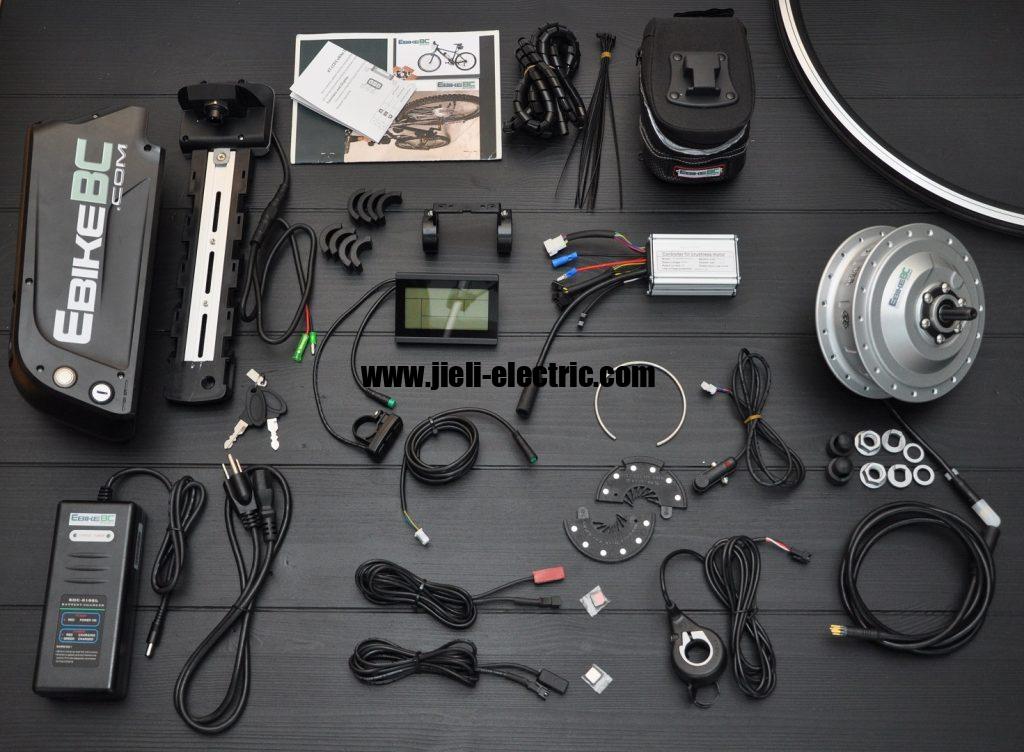As the landscape of urban transportation evolves, Tesla’s entry into the electric bicycle market, exemplified by the anticipated "Tesla e bike," signifies a pivotal moment for both consumers and manufacturers. Known for its groundbreaking innovations in electric vehicles, Tesla aims to redefine mobility with a focus on sustainability and cutting-edge technology. This article will explore Tesla’s vision for electric mobility, examining advancements in battery technology and the aesthetic appeal of its forthcoming e-bikes. Additionally, we will analyze the integration of smart technology and the potential environmental impacts of these innovations. By assessing consumer reactions and market dynamics, we will highlight the transformative potential of Tesla’s foray into the electric bicycle sector.
Key Takeaways
Tesla’s entry into the electric bicycle market emphasizes a commitment to sustainability and energy efficiency, potentially reshaping consumer preferences.
Advancements in battery technology are crucial for enhancing the performance and practicality of electric bicycles, supporting longer rides and shorter charging times.
Smart technology integration in Tesla’s electric bicycles elevates user experience, offering real-time data, navigation, and safety features.
The introduction of Tesla electric bicycles may alleviate urban congestion and emissions, promoting a shift towards sustainable urban mobility solutions.
Tesla’s Vision for Electric Mobility
Tesla’s vision for electric mobility encompasses not only advancements in electric vehicles but also a strategic expansion into the electric bicycle market, reflecting a holistic approach to sustainable transportation solutions. This initiative aligns with the company’s commitment to reducing carbon emissions and promoting energy efficiency across various modes of transport. By diversifying its product offerings, Tesla aims to capture a wider segment of environmentally conscious consumers. The integration of innovative technology in electric bicycles is expected to enhance user experience and performance. Ultimately, this move underscores Tesla’s ambition to lead the charge towards a more sustainable future in personal transportation.
Innovations in Battery Technology
Innovations in battery technology are pivotal for enhancing the performance and range of electric bicycles, driving increased consumer adoption and market growth. Advances in lithium-ion batteries, solid-state technology, and energy density enhancements are facilitating longer rides and shorter charging times. Additionally, improvements in battery management systems are optimizing energy usage and extending battery life. The integration of lightweight materials in battery design is contributing to the overall efficiency and maneuverability of electric bicycles. As these technologies continue to evolve, they will play a crucial role in shaping the future landscape of electric mobility.
Design and Aesthetics of Tesla Electric Bicycles
Design and aesthetics of electric bicycles are poised to reflect a blend of cutting-edge technology and modern minimalist style, appealing to a discerning consumer base. Tesla’s design philosophy emphasizes sleek lines and an aerodynamic silhouette, enhancing both visual appeal and performance. The use of sustainable materials will further elevate the brand’s commitment to environmentally friendly practices. Customization options may also play a significant role, allowing users to tailor their bicycles to their personal style and functional needs. Ultimately, the fusion of innovative design and advanced technology will set Tesla electric bicycles apart in a competitive market.
The Role of Smart Technology in E-Bikes
Smart technology integration in e-bikes enhances user experience by providing real-time data, navigation assistance, and advanced safety features. These innovations facilitate seamless connectivity with smartphones, allowing riders to monitor performance metrics and receive alerts. Furthermore, advanced GPS systems enable efficient route planning, optimizing travel time and energy consumption. Safety is significantly improved through features such as automatic braking systems and collision detection technology. Overall, the incorporation of smart technology transforms e-bikes into sophisticated transportation solutions that cater to modern urban lifestyles.
Environmental Impact and Sustainability Efforts
The environmental impact of electric bicycles presents a significant opportunity for reducing urban congestion and lowering carbon emissions, aligning with broader sustainability efforts in transportation. As cities continue to grapple with pollution and traffic issues, the adoption of e-bikes offers a viable alternative to traditional gas-powered vehicles. Their energy efficiency and lower operational costs contribute to a more sustainable urban mobility ecosystem. Moreover, the production and disposal of electric bicycles can be managed in ways that minimize environmental harm, particularly with advances in battery recycling technologies. Ultimately, the integration of e-bikes into daily commuting options supports a shift towards greener and more sustainable urban environments.
Potential Market Disruption
Potential market disruption in the electric bicycle sector could arise from increased competition and advancements in technology, fundamentally reshaping consumer preferences and industry dynamics. The entry of major automotive players, such as Tesla, may accelerate innovation and drive down costs, compelling existing manufacturers to adapt rapidly. Additionally, advancements in battery technology and smart features could enhance the overall consumer experience, further influencing purchasing decisions. As sustainability becomes a critical factor for consumers, brands that prioritize eco-friendly practices may gain a competitive edge. Consequently, this evolving landscape could lead to a significant shift in market share and consumer loyalty within the electric bicycle industry.
Urban Mobility Solutions
Urban mobility solutions are increasingly becoming a focal point for sustainable transportation, particularly with the integration of electric bicycles into city infrastructures. These solutions promote reduced traffic congestion and lower carbon emissions, aligning with global sustainability goals. The rise of shared electric bicycle programs has transformed urban commuting, offering residents a convenient alternative to traditional vehicles. Additionally, advancements in battery technology are enhancing the performance and accessibility of electric bicycles, making them a viable option for a broader demographic. As cities adapt to these innovations, the role of electric bicycles in urban planning and mobility will continue to expand.
Consumer Reactions and Expectations
Consumer reactions to Tesla’s entry into the electric bicycle market indicate a mix of excitement and skepticism regarding the brand’s ability to innovate in this new segment. Enthusiasts express optimism about Tesla’s potential to leverage its technological expertise to enhance performance and sustainability in electric bicycles. Conversely, some consumers question whether the company’s reputation for premium pricing will alienate a broader audience seeking affordable options. Additionally, there are concerns about the practicality and reliability of a product line that diverges from Tesla’s core automotive offerings. As the market evolves, consumer feedback will play a critical role in shaping Tesla’s strategies and product development in the electric bicycle sector.
The Future Landscape of Electric Bicycles
Innovations in technology and design are poised to reshape the future landscape of electric bicycles, influencing both market dynamics and user experiences. The integration of advanced materials and smart technology is expected to enhance performance and sustainability. As major automotive players like Tesla enter the market, competition will drive innovation and potentially lower prices for consumers. Furthermore, the evolution of charging infrastructure will facilitate greater adoption and convenience for users. Ultimately, the convergence of these factors will redefine urban mobility and transportation choices in the coming years.
Frequently Asked Questions
What is the expected price range for tesla’s electric bicycles?
The expected price range for electric bicycles typically varies based on features, brand reputation, and technology integration, with most models falling between $1,000 to $3,000. As new entrants in the market emerge, such as Tesla, pricing strategies may also reflect their commitment to innovation and quality, potentially positioning their offering within or above this range.
How will tesla’s entry affect existing electric bicycle manufacturers?
Tesla’s entry into the electric bicycle market is likely to increase competition, prompting existing manufacturers to enhance their product offerings and innovate to maintain market share. Additionally, this influx of attention and resources could lead to greater consumer awareness and demand for electric bicycles overall, benefiting the industry as a whole.
What warranty or service options will tesla offer for its electric bicycles?
Tesla is expected to provide a comprehensive warranty and service package for its electric bicycles, likely mirroring its existing automobile offerings, which typically include a limited warranty covering defects and performance for a specified duration. Additionally, Tesla may establish a network of service centers to ensure accessible maintenance and support for bicycle owners, enhancing customer satisfaction and brand loyalty.
Conclusion
The entry of Tesla into the electric bicycle market signifies a pivotal moment in the evolution of sustainable transportation. By leveraging advancements in battery technology, innovative design, and smart features, Tesla aims to redefine user experiences and performance standards within this segment. The anticipated competition resulting from Tesla’s involvement is likely to spur further innovations and enhance product offerings across the industry. As consumer preferences increasingly lean towards eco-friendly alternatives, Tesla’s influence may play a crucial role in mainstreaming electric bicycles. Ultimately, the future of personal transportation appears poised for transformation, characterized by a growing emphasis on sustainability and advanced technology.
If you’re eager to dive deeper into the evolving landscape of electric bicycles, I highly recommend visiting the page on understanding e-bike laws. This resource provides valuable insights into the differences between federal and state regulations, which are crucial for anyone interested in the future of e-bikes, especially with Tesla’s entry into the market. Stay informed and navigate the legal framework effectively!


